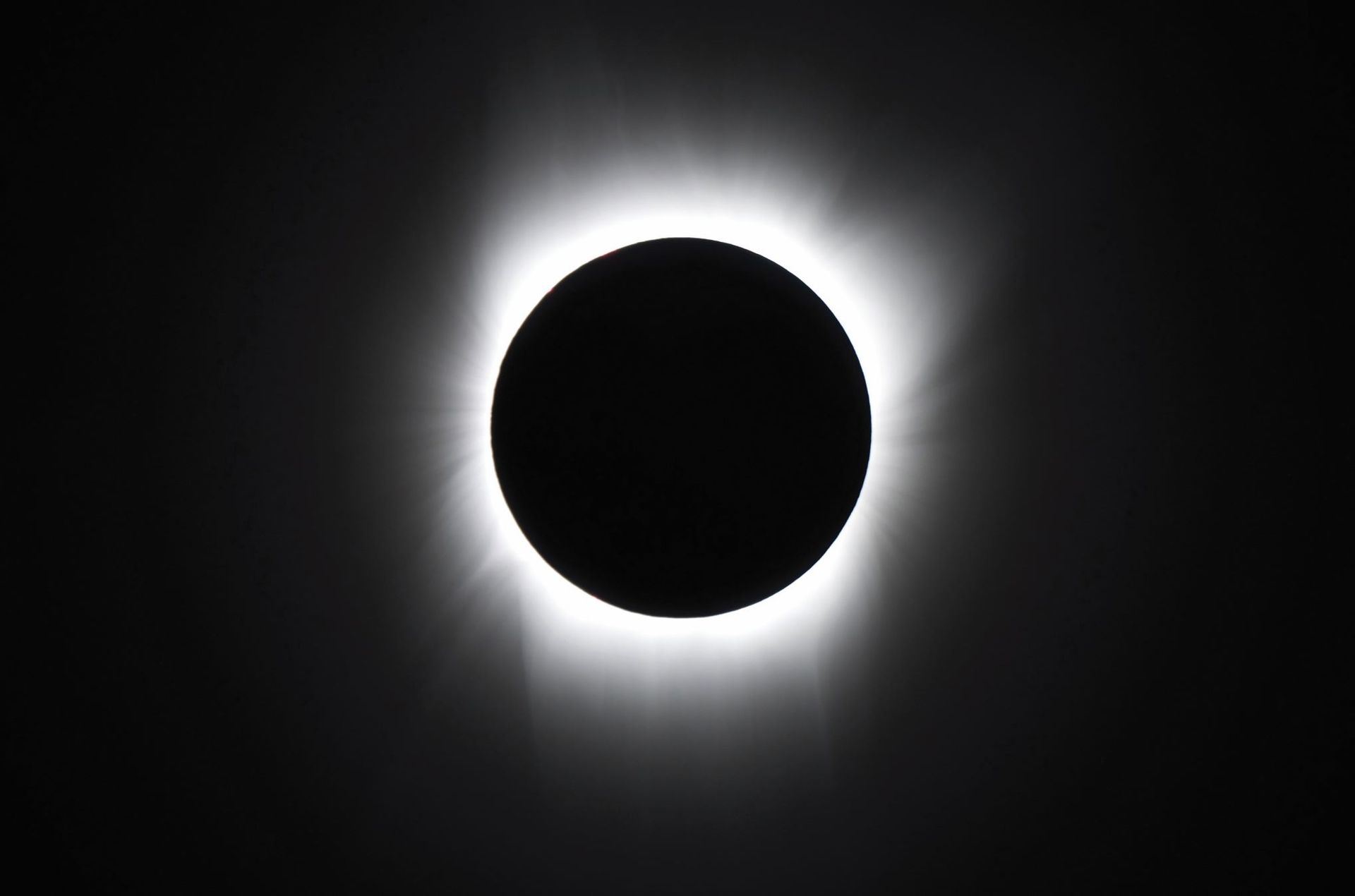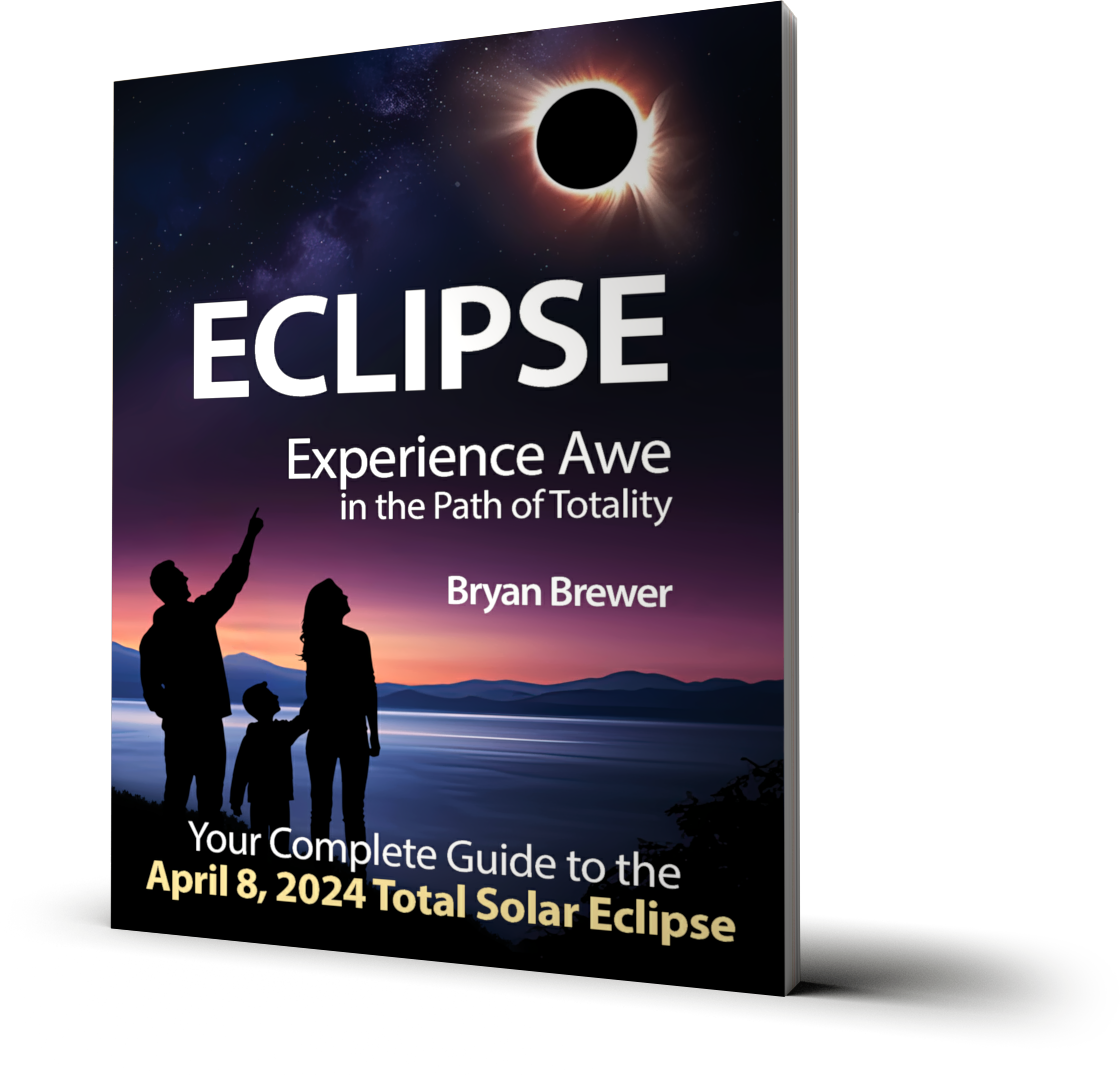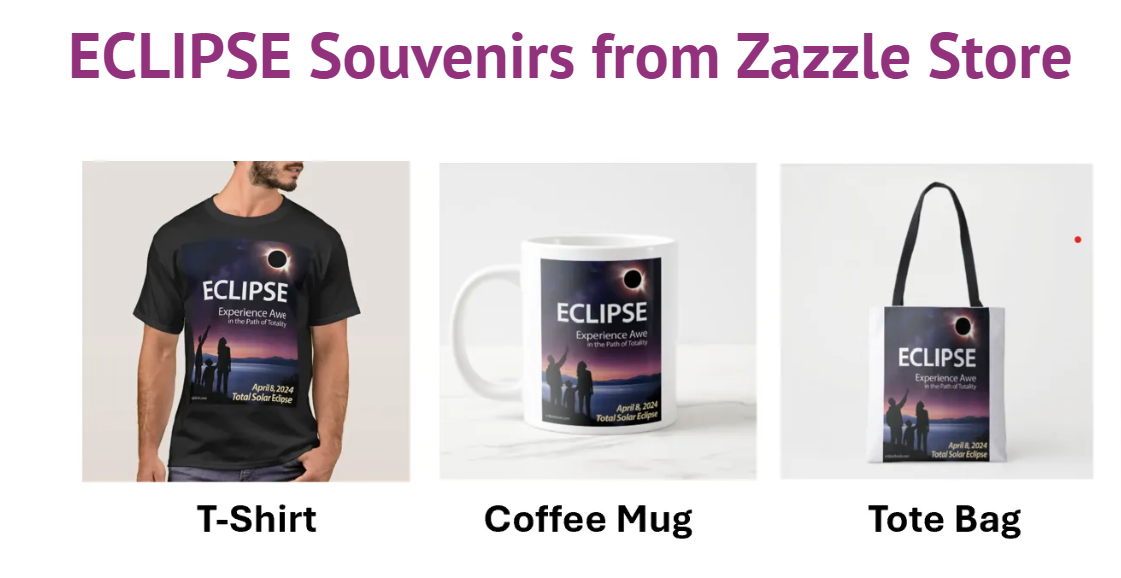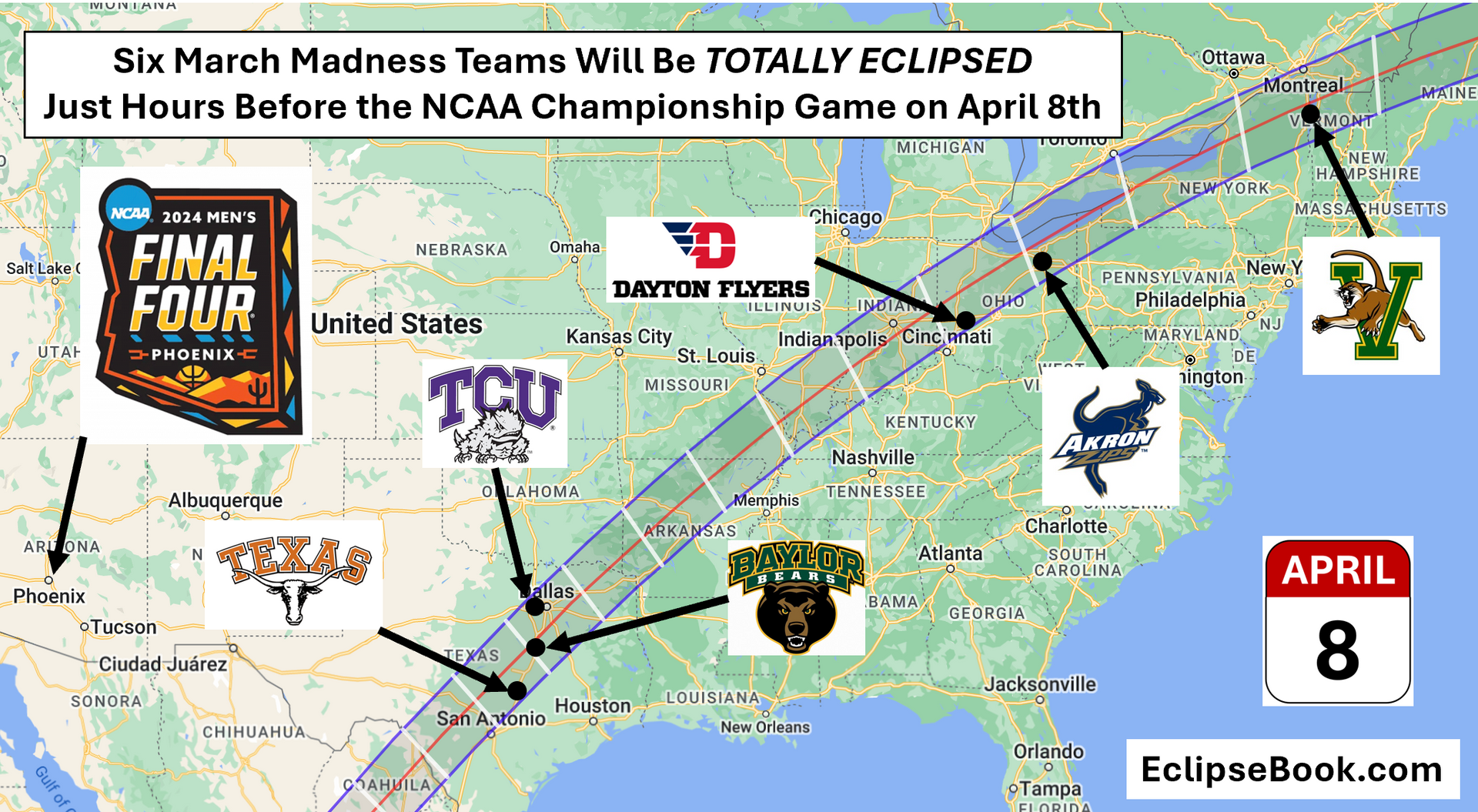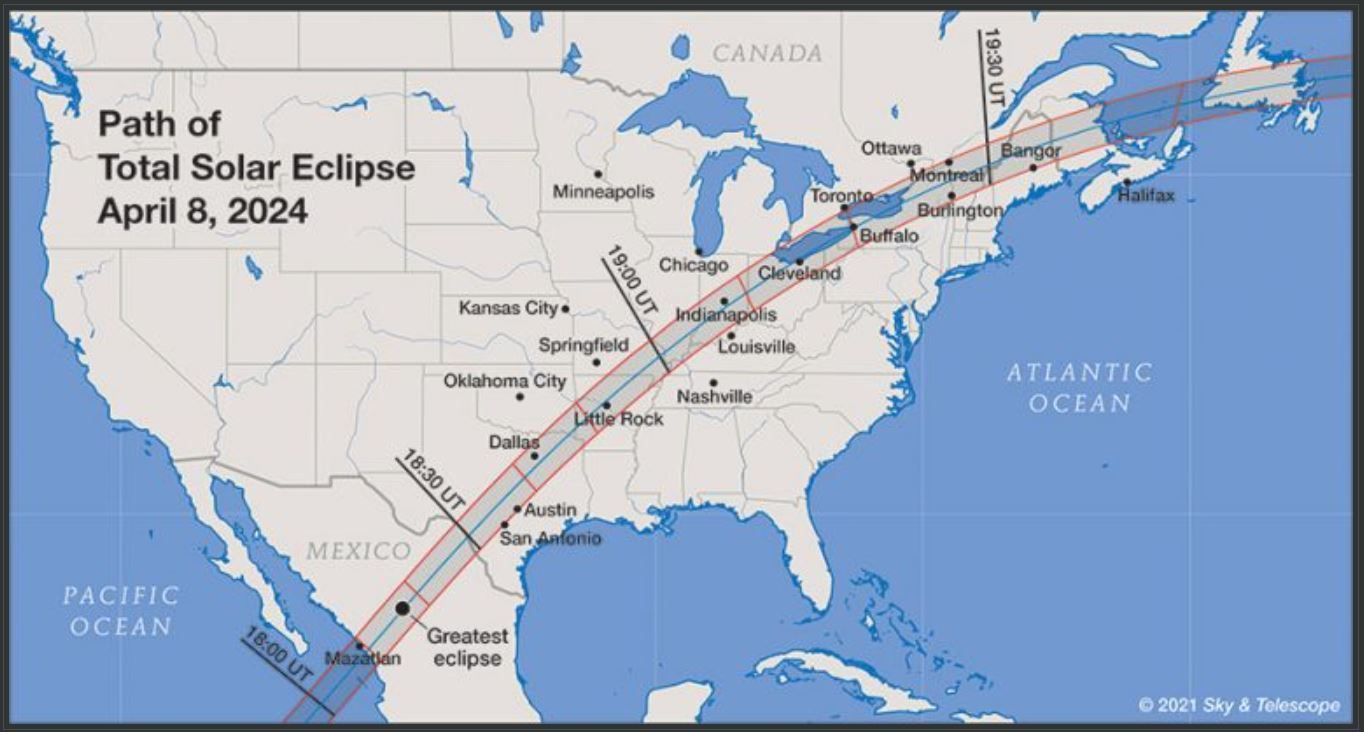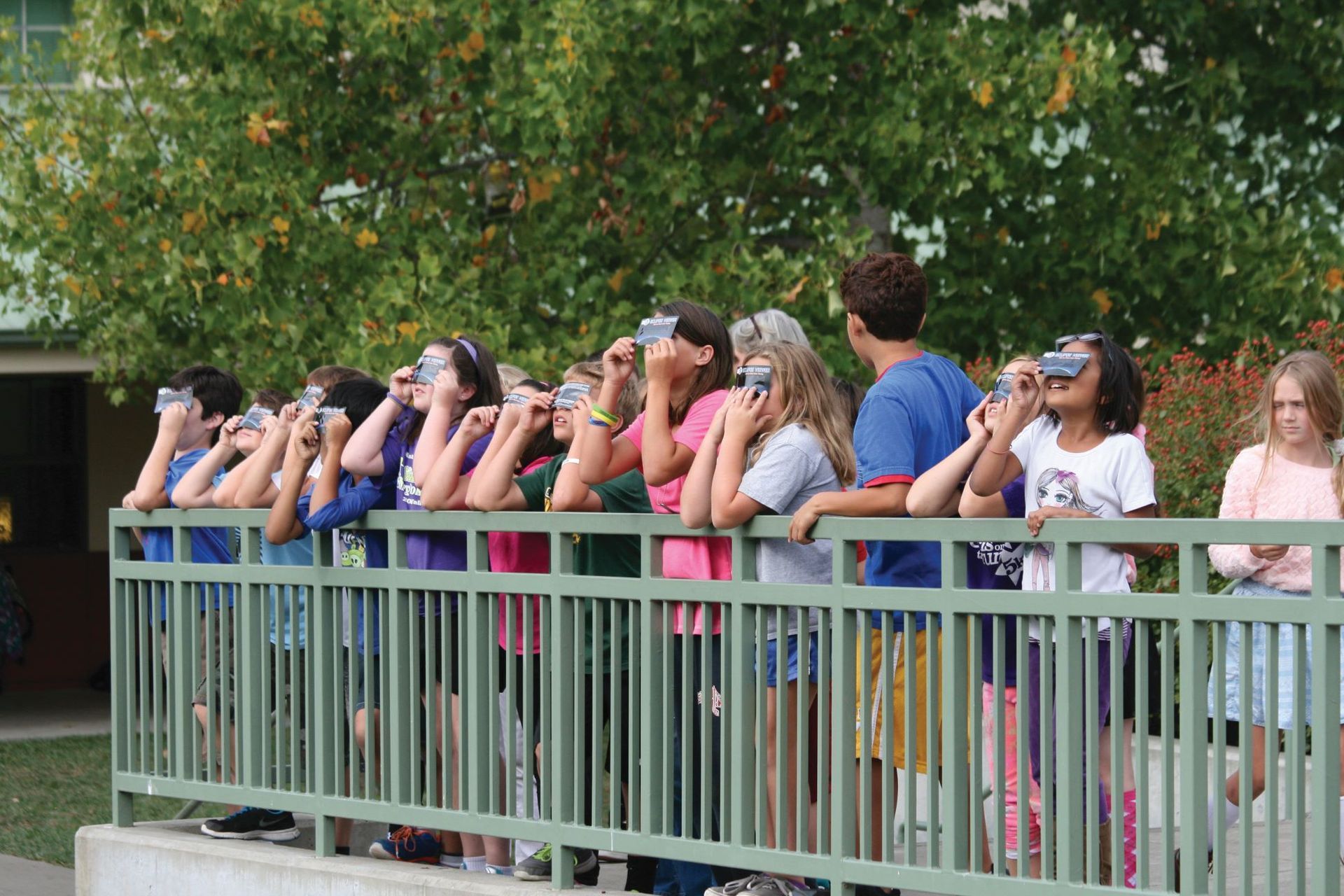
Eye Safety for Viewing a Total Solar Eclipse
The total phase of a solar eclipse, when the sky is dark and the corona is visible around the Sun, is a beautiful sight. The best way to observe the event during these few brief minutes is simply to look directly at this glimmering halo in the sky. The corona is a million times fainter than the bright disk of the Sun; there is no danger of eye damage when looking directly at the corona or the prominences during totality. Binoculars may reveal even finer detail, but most observers agree that the naked eye is the best “instrument” for viewing the full glory of the event.
For about an hour before and after the total phase the Sun is only partially obscured. This is when it is dangerous to look directly at the Sun. Normally the Sun is too bright to look at anyway. Humans have an instinctual reaction to look away from the bright Sun. But during the partial phases, the Sun does not appear as bright, and you may be tempted to look directly at the Sun. DON’T DO IT! The danger of damaging your eyes does not depend on brightness. As long as any portion of the Sun’s disk remains visible it can still cause eye damage.
The lenses of your eyes act as tiny magnifiers; if you look at the partially eclipsed Sun, its rays are focused on the retina of your eyes and can burn them. This is the same sort of thing that happens when you use a magnifying glass to focus the Sun to a pinpoint on paper or leaves to burn a hole in them. The only difference is that it is your eyes that would be burned. Part of the danger lies in the fact that the retina is not sensitive to pain; you wouldn’t even feel it happening. But a retinal burn is permanent and irreversible, producing a blank spot in the most vital part of your field of vision.
Astronomers observe the sun directly through professionally manufactured optical filters that screen out the hazardous rays of the Sun. But unless you are trained in their use, it is not recommended that you try this method. And you’re taking a big chance if you try to improvise your own filter. During the March 7, 1970, eclipse in the United States there were 145 reported cases of people who damaged their eyes by looking at the partially eclipsed Sun either directly or through sunglasses, exposed film, smoked glass, and the like. None of these homemade devices can be guaranteed safe. Instead, use professionally manufactured “eclipse glasses” made with optical grade film that filters out most of the Sun’s rays to protect your eyes from damage during the partial phases of the eclipse. Play it smart and don’t take any chances with your precious gift of vision. And… don’t forget to remove your eclipse glasses during the few minutes of totality. Otherwise, you’ll miss the beauty of the solar corona, which is not visible through the filter material of eclipse glasses.
—Bryan Brewer, author of ECLIPSE: Experience Awe in the Path of Totality
#getinthepath #2024totalsolareclipse #awesomeeclipse #eyesafety #eclipseglasses
ECLIPSE: Experience Awe in the Path of Totality, by Bryan Brewer, is now in its fourth edition, which has been updated especially for the
April 8, 2024 total solar eclipse. Author
Bryan Brewer has traveled to witness six total solar eclipses over the past few decades, and has served as an expert speaker on eclipse travel expeditions and for numerous science museums, planetariums, libraries, and bookstores. Bryan enjoys sharing stories and talking about all aspects of eclipses, and has done many media interviews (TV, radio, podcasts, online, and print) to help people get the most out of this rare and truly awesome spectacle of Nature.
